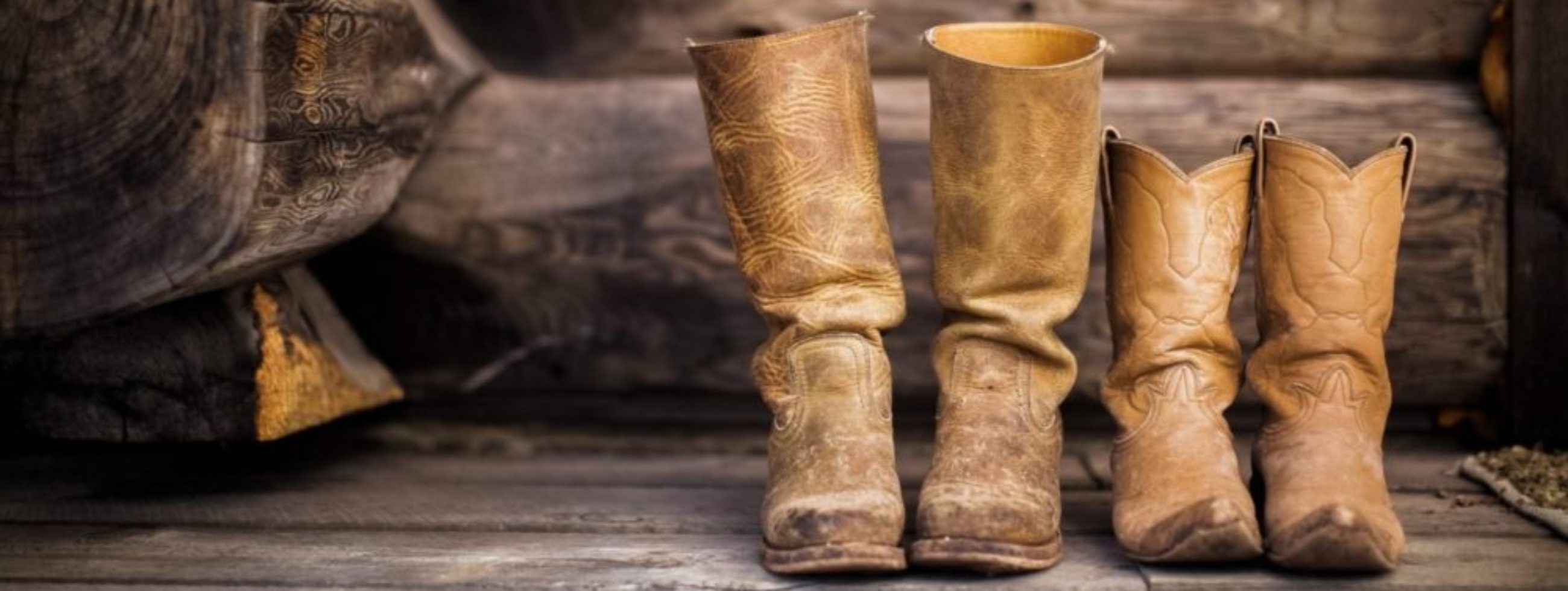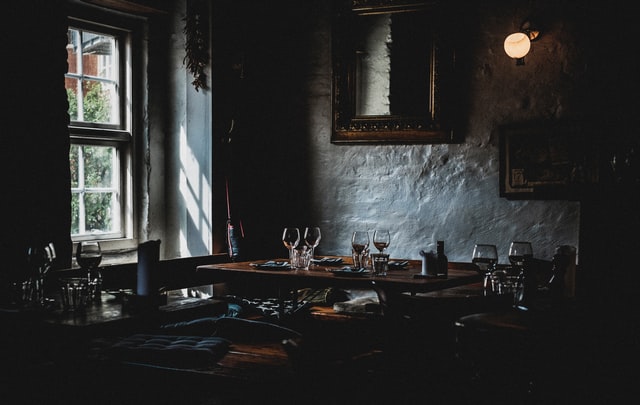Often, we collectively encouraged him when he was in an inebriated state, because we were all generally in an inebriated state, to ride his horse around the pool table in the bar where everyone knew everyone else’s face even if we could rarely remember each other’s names. Some of us generally had forgotten our father’s name in the state we were in. That seemed to happen once a week, for about a year until the owners spent several grand on a new hardwood floor—and Jean Autry and her horseshoes were no longer welcome.
Pappy was good at drinking Diamond Red wine, poaching deer, and breaking horses. He was generally bad at gold mining, smoking pot, and women. Pappy lived out of his saddle and sometimes under bridges and lots of times on the edge of deep timber with his horse and a campfire, at times with anyone who would put up with him. He was a Korean War Veteran and claimed to have been shot up, stomped on, broke legged shit-on throughout most of his life and had the scars to prove it.
There was a six-month spread when Pappy had a seventeen-year-old girlfriend who ran away from an affluent but oppressively violent home 200 miles away, and somehow hooked up with Pappy, bought herself a Welsh mare, and rode everywhere Pappy did. With a floppy hat and a Rubenesque figure, she put Pappy through his paces and had him riding with the wind boiling through his horse’s mane. She had been the slightly chubby rich girl from grade school whose father bought her and her sisters fine Arabian geldings. She knew during this pleasant upbringing, nothing of what she learned underneath the starry, starry skies with her very own cowboy horse- trainer Blackfoot Indian who fed her stories on the 17th parallel and showed her the finer points of horse sense. She’d take the six months with Pappy with her all her life, but six months was probably enough. Her mare’s name was Pinkie.
Pappy taught her everything he knew about horses, which was considerable. Pappy never got on a green unbroken horse, but through a myriad of rope tricks would take the wildest mustangs and with the knowledge of their pressure points have them behaving like tame well-trained dogs in a matter of a just a few days sometimes. They’d walk around the corral with their ear at Pappy’s shoulder.
“Stop!” he’d holler. And the horse would stop.
“Back!” he’d holler. And the horse would begin to back up. Then around the corral they’d go again. Then sometime after that was standard, Pappy would put a saddle on the horse. After the same drill with the saddle, Pappy would get on the horse and ride. This generally took about a week or less.
Jean Autry and Pappy and his girlfriend and Pinkie had come off the Dead Indian highway after a trip up to Lake of the Woods in the early fall camping, eating poached deer and living in the crisp night air by a campfire bundled up in a zip-together sleeping bag bedroll.
Sadly, a log truck spooked Pinkie and she threw her young equestrian into the ditch, but Pinkie got clipped hard by the back tires of the truck that swayed out onto the shoulder of the road. Pappy had to shoot Pinkie, and had a friend come get the dead horse and haul it to his ranch, where Pappy butchered up Pinkie and passed some of the steaks around. This didn’t sit well with his seventeen- year-old girlfriend and after that she dumped him and went home to her parents. Pappy went on the skids for a short while after that.
On one of those bad nights after his heaven-sent young woman rode away into the sunset, several of us watched him stagger out of the bar, too drunk to climb on his horse, and we were too drunk to help him without being kicked. After several attempts to swing an uncooperative leg over the saddle, Jean Autry finally got her head down between Pappy’s legs and lifted him front ways over her neck and got Pappy into the saddle, facing backwards, but nonetheless mounted on his steed; Pappy eventually got turned around and then Jean Autry walked through the streets and back to their camp under the bridge while Pappy slept in his saddle.
Pappy convinced anyone he met that he couldn’t read. Yet the fact was that he had consumed all of Steinbeck, Hemingway, Zane Gray and of course Louie Lamour, but he’d not dream of letting anyone know he was literate.
“It’s detrimental to your health to let anyone know you know anything.” he said.
He was charming for about ten minutes and could get any woman’s attention for at least that long, but the long bouts with Diamond Red and sleeping under bridges made that about the limit of duration for all but the most curious.
“Katy bar the gate! There’s a Recess in Heaven! For an angel, has entered our midst!” he’d say perched at the front bar stool as a woman would enter the bar. And he was perennially on the first stool by the entrance. He seemed always to be ready for arcane adventure toward easy money of some kind and would stop at nothing this side of armed robbery. There were hundreds of failed, but at the time surefire gold schemes, all ending up with him as broke as he began and pockets as empty as the bottles of Diamond Red strewn around his camp.
Pappy had a problem with a bad tooth on a cold winter’s evening and tried to get some clinic or welfare agency to help him out of his agony. After three days of no luck he took a twenty-pound rock and put it through the glass door of the police station. When a beehive of cops appeared and he was arrested, he made them take care of his bad tooth. He did seventy-two hours in the can and was out with his dental problems behind him.
He disappeared for several years into the Siskiyou mountains, the border between Southern Oregon and Northern California, with a string of horses and a giant woman and a gleam in his eye, and with stories about sure gold strikes.
Some years later was the last time I saw Pappy. I had first run into him in the same bar ten winters before I sat there talking to him for the last time. He’d just been released from a California penitentiary after he’d had his third heart attack there. He had gone to the pen because he’d given up his gold, for growing pot in the remote roadless areas he’d not been able to strike it rich on. He’d apparently had some serious success with this enterprise and paid cash for a five-acre parcel close to a National Forest and a shack and a barn and good corral for horses and he was with the same woman he left town with. He’d begun however, to have heart problems and only jail had stopped him from drinking and smoking.
When some redneck thought the skinny cowboy with heart problems could be taken advantage of and reneged on paying for a couple pounds of hand-grown pot, Pappy beat a man twice his size almost to death with a two-by-six.
He was wide eyed, albeit a little pale looking, and drinking draft beer with the same giant woman I’d seen him disappear with years ago.
“I’ve had six heart attacks!” he said, greeting me with a wild- eyed grin.
“The last three was in the state pen.” He was pulling on his beer like a man who’d just walked across the Mojave Desert. His old perilous grin and a different appearance somehow, perhaps serenity, perhaps enlightenment, perhaps he was just damn glad for being out of jail. But after the brief greeting and small talk he turned to me like an evangelist.
“Now don’t you ever be afraid of dyin’. The last heart attack I just plum crossed over to the other side and saw me a rainbow bigger than this whole damn valley! I saw great streams of colorful lights, the likes you’ve never seen, I seen green like you never seen; ah there’s horses there too! And there was peace like I’ve never felt, all so beautiful makes me want to bawl like a baby just thinking it. I saw my little brother there, the one that had died back on the Res. A feeling I had that is the happiest feeling this sorry son-of-a-bitch has ever felt. No worry, no guilt, no pain, no wanting anything. Then I woke up with this pencil-necked intern pulling a big horse needle out of my chest.”
“You son-of-a-bitch!” I said. ‘Why the hell did you do that? I don’t need back in this forsaken hell-hole of a place, goddamn you, goddamn you!” I said.
“The skinny little bastard looked like; he’d seen a ghost, he did!” Pappy laughed and was drinking out of a large pitcher by now. “That was three weeks ago. They told me I couldn’t drink, or
smoke again,” he said, lighting a tailor-made Pall Mall off the one
he’d just had in his mouth.
“They let me out of jail because they said I’d die before I’d serve out the next three years of my sentence,” Pappy said.
As he began surveying around the bar as if someone was listening that should not get this information, he was wide-eyed and almost contrite. I’d not really seen him this way ever. He got out of jail and his woman just drove him north across the Oregon-California border because she now lived back in Oregon, having sold their place and horses and everything with Pappy being in jail..
“Don’t ever be afraid of dyin’ ever!” he coughed, wide-eyed and as seriously adamant as I’d ever seen him.
“If a son-of-a-bitch like me has got that to look forward to, you’re all going to be just fine!” he said motioning a benediction up and down the bar. The smoke was wafting up toward the ceiling fans; Universalism, and the rumble of beer glasses, music, and a mumble of the rest of the barflies prevailed. I’m pretty sure I was the only one who heard this story that night.
James Ross Kelly lives in Northern California next to the Sacramento River. Mr. Kelly was a long-time resident of Southern Oregon where he grew up. “We All Called Him Pappy” first appeared in Mr. Kelly’s collection of short stories entitled “And the Fires We Talked About” published by UnCollected Press.

